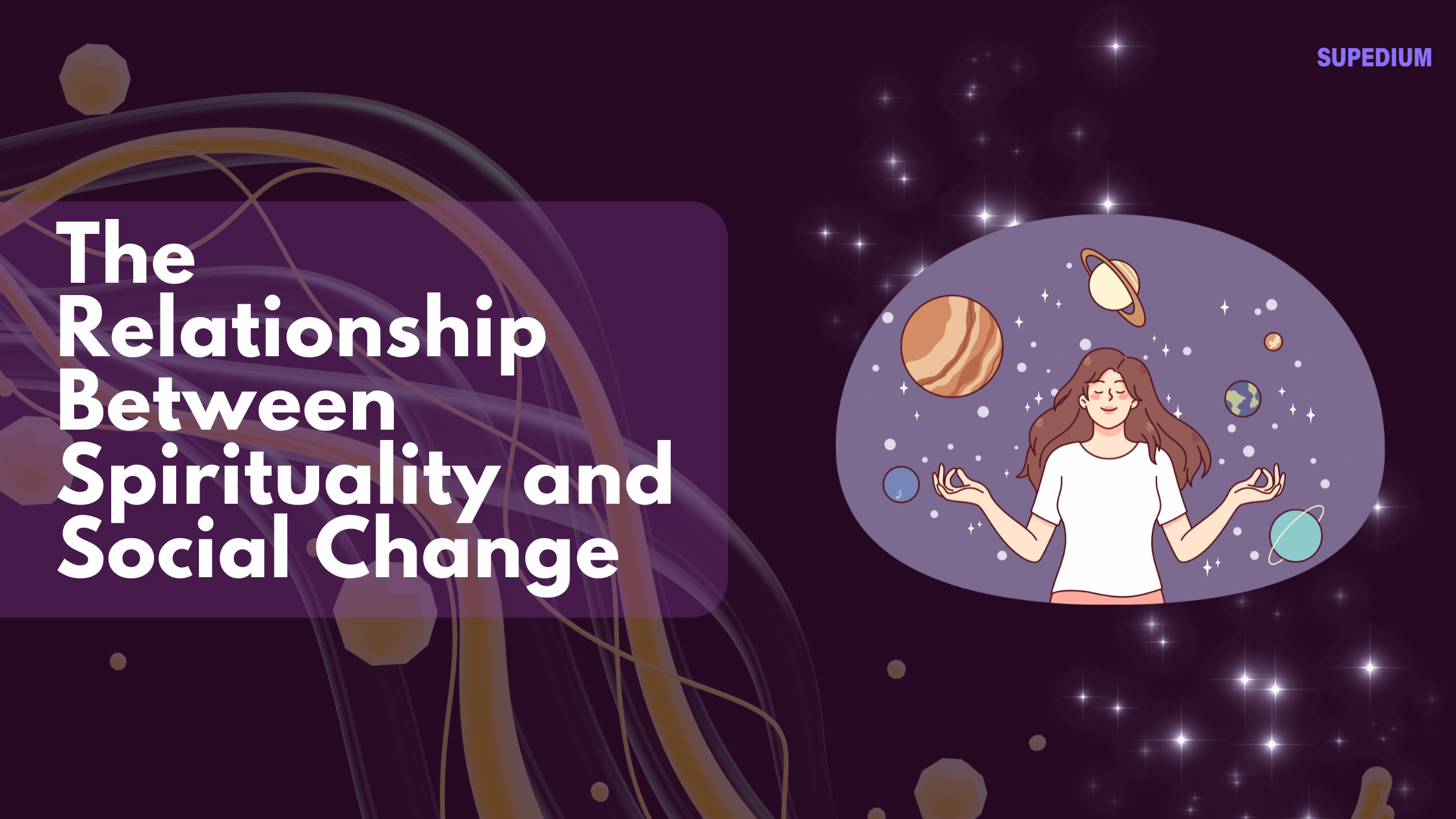Table of Contents
![]()
I. Introduction
Spirituality is often seen as a deeply personal experience that connects individuals to something greater than themselves, whether that be a higher power, nature, or the universe. Unlike organized religion, which typically involves formal doctrines and practices, spirituality can be fluid and varied, encompassing a wide range of beliefs and practices. Understanding this distinction is crucial as we explore the impact of spirituality on social change.
Social change refers to significant alterations over time in behavior patterns, cultural values, and social structures. These changes can manifest in various forms, from grassroots movements to sweeping legal reforms. Historically, spirituality has played a pivotal role in many social movements, providing ethical frameworks and motivating individuals to act. This article delves into the intricate relationship between spirituality and social change, examining historical contexts, theoretical frameworks, mechanisms of influence, case studies, challenges, and future directions.
II. Historical Context
A. Spirituality in Ancient Societies
In ancient societies, spirituality was often intertwined with governance and community life. Many indigenous cultures viewed the natural world as sacred, integrating spiritual beliefs into daily practices and decision-making. For instance, in many Native American traditions, spirituality and environmental stewardship were inseparable, leading to sustainable practices that respected the earth.
B. Spiritual Movements in Modern History
Modern history offers numerous examples of spirituality inspiring social movements. The civil rights movement in the United States prominently featured leaders like Martin Luther King Jr., who drew upon Christian spiritual principles to advocate for equality and justice. Similarly, the anti-apartheid movement in South Africa, led by figures such as Desmond Tutu, utilized spirituality to unite diverse groups against oppression.
III. Theoretical Frameworks
A. Theories Linking Spirituality and Social Change
Several theoretical frameworks illustrate how spirituality can drive social change. Social movement theory explores how collective action arises, emphasizing the importance of shared beliefs and values. Liberation theology combines Christian teachings with a commitment to social justice, inspiring many activists in Latin America and beyond.
B. Psychological and Sociological Perspectives
Psychologically, spirituality can serve as a catalyst for personal transformation, fostering resilience and a sense of purpose. This transformation often leads to collective action, as individuals who experience profound spiritual awakening frequently feel compelled to address societal issues. Sociologically, the concept of collective consciousness—shared beliefs and values among a group—can mobilize individuals towards social change, creating a unified front for advocacy.
IV. Mechanisms of Influence
A. Spirituality as a Source of Motivation
Spirituality often acts as a powerful motivator for social action. Individuals inspired by their spiritual beliefs frequently engage in activism, seeking to align their actions with their values. Personal narratives of transformation highlight how spirituality can lead to profound commitments to social causes.
B. Community Building and Solidarity
Spiritual communities play a crucial role in fostering social change by providing support networks for activists. Rituals and collective practices create bonds among individuals, fostering solidarity and a sense of belonging. These communities often become incubators for social movements, offering both emotional and practical support.
C. Vision and Values Shaping Social Agendas
Spiritual values can profoundly influence social agendas. Many activists advocate for policies that reflect their spiritual beliefs, such as environmental sustainability, human rights, and social justice. Spirituality can provide a moral compass, guiding individuals and communities toward ethical decision-making and advocacy.
V. Case Studies
A. Mahatma Gandhi and Non-Violent Resistance
Mahatma Gandhi exemplifies the integration of spirituality and political activism. His philosophy of non-violent resistance, rooted in Hindu and Jain principles, mobilized millions in the struggle for India’s independence. Gandhi’s spiritual beliefs informed his commitment to justice, equality, and non-violence, illustrating the power of spirituality in social change.
B. Martin Luther King Jr. and the Civil Rights Movement
Martin Luther King Jr. is another prominent figure who harnessed spirituality for social change. His speeches and writings often drew upon Christian teachings, emphasizing love, forgiveness, and the inherent dignity of all individuals. King’s spiritual foundation galvanized the civil rights movement, making it a moral crusade for justice.
C. Contemporary Movements
In recent years, spirituality has continued to inform social movements. Environmental activism, particularly among indigenous communities, often emphasizes spiritual connections to the land. Modern movements, such as those advocating for mindfulness and mental health, also incorporate spiritual principles, promoting holistic approaches to societal issues.
VI. Challenges and Critiques
A. Potential for Misinterpretation of Spirituality
While spirituality can inspire positive social change, it can also be misinterpreted or co-opted for political agendas. The use of spiritual language in political movements may dilute its meaning and intent, leading to conflicts between spiritual and secular ideologies.
B. The Risk of Spiritual Bypassing
Spiritual bypassing refers to the tendency to use spiritual practices as a way to avoid addressing social responsibility. This phenomenon can hinder meaningful engagement with pressing societal issues, as individuals may retreat into personal spirituality without translating it into action.
C. The Role of Privilege in Spiritual Activism
The accessibility of spiritual resources can create disparities within social movements. Those with privilege may dominate spiritual spaces, potentially marginalizing voices from underrepresented communities. Acknowledging these dynamics is crucial for fostering inclusive and effective activism.
VII. Future Directions
A. The Evolving Role of Spirituality in Global Social Change
As globalization and technology reshape society, the role of spirituality in social change is evolving. Social media platforms facilitate the rapid dissemination of spiritual messages, connecting activists across borders. New spiritual movements, emphasizing inclusivity and sustainability, have the potential to inspire collective action on a global scale.
B. Interfaith and Intercultural Approaches
Building coalitions across different spiritual traditions can enhance the effectiveness of social movements. Interfaith dialogues promote understanding and collaboration, allowing diverse perspectives to contribute to shared goals. Global perspectives on spirituality and social justice can lead to innovative solutions for pressing issues.
VIII. Conclusion
The relationship between spirituality and social change is profound and multifaceted. Historical examples illustrate how spiritual beliefs can motivate individuals and communities to advocate for justice, equality, and environmental stewardship. While challenges and critiques exist, the potential for spirituality to inspire social change remains significant. By integrating spiritual values into social movements, we can create a more just and compassionate world.
Share This





Be the first to comment